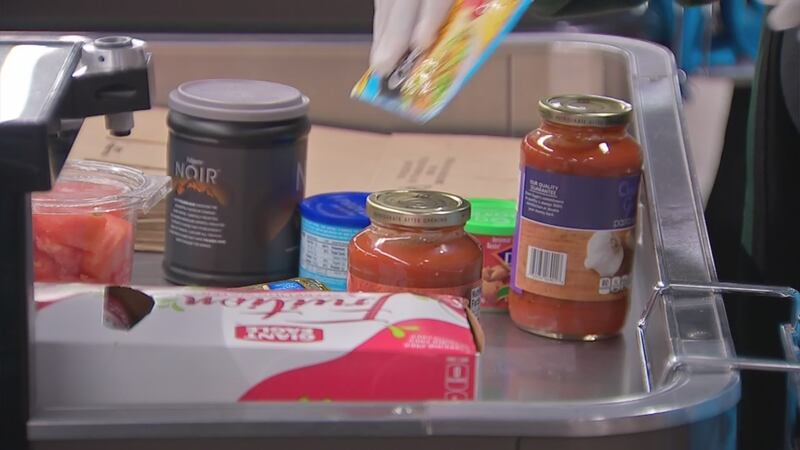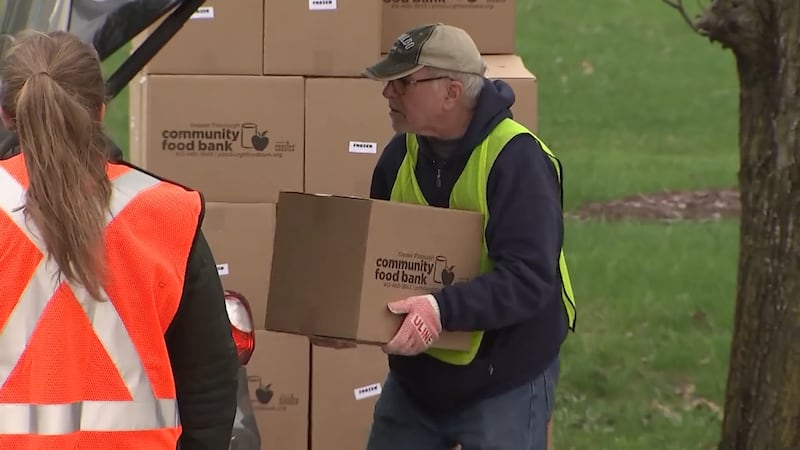The Department of Agriculture reassured Pennsylvanians on Thursday that there is no evidence that COVID-19 is transmissible through human or animal food or food packaging.
“I want to assure Pennsylvanians and ease their fear: food is safe,” Agriculture Secretary Russell Redding and Department of Agriculture Food Safety Director Jeff Warner said. “There is no evidence of COVID-19 being transmissible through food or food packaging.”
Have questions about the spread of the coronavirus? We have an entire section dedicated to coverage of the outbreak. CLICK HERE for more.
Warner also reviewed the department’s recommendations to retail food and agriculture operations for continuity of business, inhibiting transmission and maintaining a healthy workforce to ensure continuous access to food during the COVID-19 pandemic.
Grocery stores, food manufacturers, and distributors have been provided guidance to protect their workforce and consumers from COVID-19. This includes the following CDC and FDA recommendations:
- Enforce social distancing in lines, separate customers and employees by 6 feet whenever possible.
- Implement visual cues, such as tape on the floor every 6 feet, to help customers keep a 6-foot distance from others whenever possible.
- Install floor markings to require customers to stand behind, until it’s time to complete the transaction.
- Consider limiting the number of people in the store at one time. Implementing a maximum capacity and assigning staff to manage the number of people entering.
- Consider setting special hours for vulnerable populations, such as the elderly or immuno-compromised. Recommend allowing these populations to enter the store earliest in the day to reduce chances of exposure and ensure access to inventory.
TRENDING NOW:
Guidance was also provided for sanitization and employee protection, to further inhibit transmission in manufacturing environments and grocery stores. Some recommendations include:
- Do not allow symptomatic (fever of 100.4° F or greater, signs of a fever or other symptoms) or ill employees to report for duty.
- Regularly clean and disinfect surfaces to limit employee contact and increase frequency of cleaning and sanitizing of common touch points (door handles, touch-screens, keypads).
- Consider altering store hours to allow for increased cleaning and restocking without customers present.
- Cross-train employees and rotate staff between cashier, stocking, and other duties, to limit mental fatigue in adhering to social distancing measures.
- Consider installing sneeze guards at cashier stations.
- Schedule hand-washing breaks every 30-60 minutes. Employees should wash hands with soap and water for at least 20 seconds. If soap and water are not available and hands are not isibly dirty, an alcohol-based hand sanitizer that contains 60%-95% alcohol may be used. However, if hands are visibly dirty, always wash hands with soap and water.
- Assign a relief person to step in for cashiers so they can wash their hands with soap for a full 20 seconds. Provide hand lotion so workers’ hands don’t crack.
- Consider providing hand sanitizer at cash registers for staff and customer use in between transactions.
- Consider only operating every other register or check-out lane to create more social distance.
“Pennsylvania’s grocery stores, food banks and pantries, food manufacturing and agriculture industry have a heavy responsibility right now: to provide continuous access to food, safely, during the most challenging crisis most have ever experienced,” said Redding. “We’ve worked hard to impress upon these truly life-sustaining businesses that just because they are essential, this is not business as usual. The guidance we’ve provided is what they must implement to protect their workforce; it’s what they must implement to save Pennsylvanians and provide for them at the same time.”
The department also said they redeployed the state’s food safety inspectors to ensure continued protection of Pennsylvanians and prevent foodborne illness following a brief pause in support of the national “15 Days to Slow the Spread” initiative.
You can click here to read more from the Department of Agriculture.
© 2020 Cox Media Group








